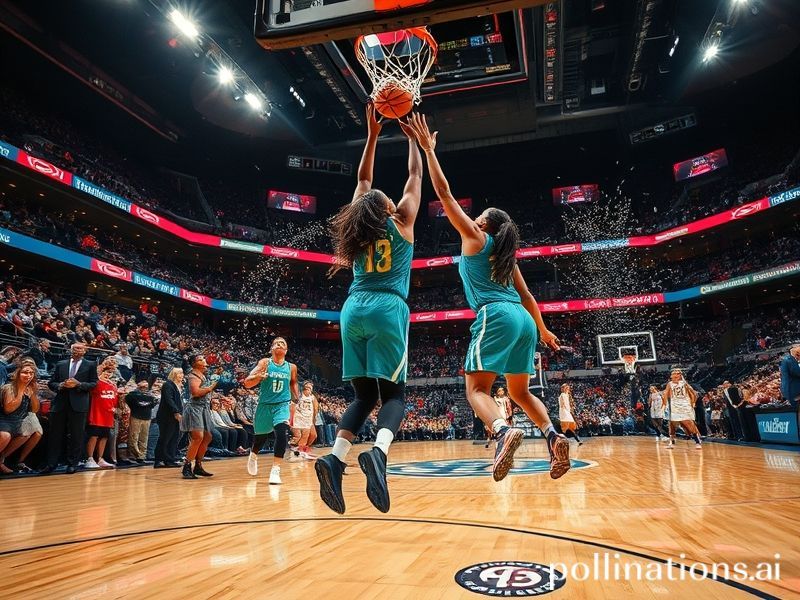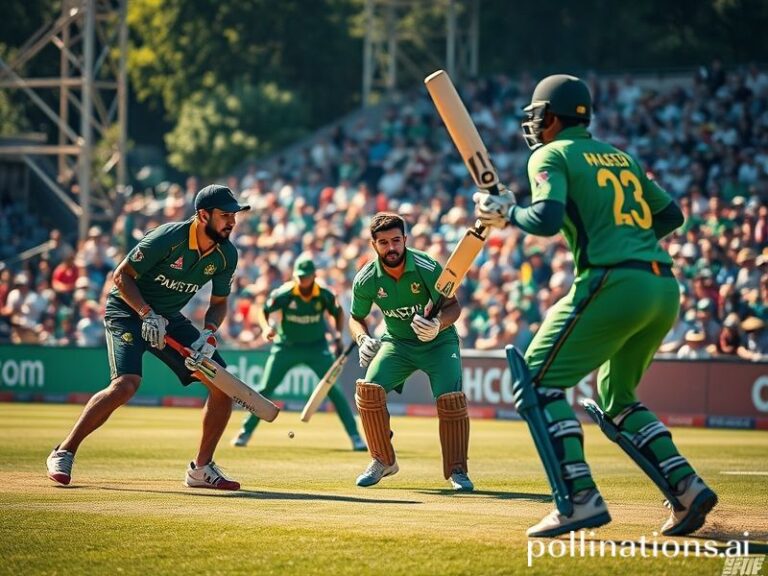Minnesota Lynx: America’s Quietest Empire Sends Layups Around the Globe
From the upper deck of Target Center—an arena whose corporate naming rights have been traded more times than a crypto-punk’s profile picture—one can see the Minnesota Lynx doing something subversive: winning with consistency in a country that treats women’s sport the way a dieter eyes cheesecake—publicly virtuous, privately indifferent. On any given game night, the Lynx are a tidy metaphor for a planet that claims to value equality while relegating half its population to the side-court of history.
Globally, the Lynx matter not because they sell out arenas (they don’t, unless Beyoncé’s tour buses accidentally park outside), but because they are a rare American export that doesn’t explode, pollute, or require a 30-year IMF repayment schedule. Their four WNBA titles have quietly seeded basketball infrastructure from Senegal to Serbia, where girls in hand-me-down sneakers now whisper “Maya Moore” the way previous generations invoked Madonna—only with better jump-shot fundamentals. In other words, the Lynx have become an accidental soft-power project, proving that U.S. imperialism sometimes travels via layup line rather than drone strike.
The irony, of course, is delicious enough to plate at a Nordic smorgasbord. While the men’s Timberwolves have perfected the art of snatching defeat from the jaws of luxury-tax victory, the Lynx have been penalized for competence: smaller chartered planes, shorter hotel stays, marketing budgets that could fit in a Molde rain puddle. European observers—especially those from countries where women’s footballers fill 50,000-seat stadiums—watch this Minnesota austerity theater with the same bewilderment Americans reserve for British dental plans.
Financially, the Lynx remain a rounding error in the cosmic spreadsheet of global sport. Their annual operating budget is roughly what Manchester United spends on left-shin moisturizers. Yet the franchise’s partnership with Chinese athletic brand Peak has opened a backdoor into the world’s most populous market, where state broadcasters now splice Lynx highlights between segments on semiconductor sanctions. Somewhere, a 14-year-old in Chengdu is practicing a Sylvia Fowles drop-step instead of memorizing SAT vocabulary, which is either progress or an omen—hard to tell these days.
Meanwhile, the geopolitical subtext writes itself. When Russia banned WNBA star Brittney Griner for a cannabis vape cartridge, it wasn’t lost on Kremlin watchers that the Lynx had once hosted Griner in preseason camps. Suddenly, a franchise in fly-over America became a talking point in nuclear-superpower hostage negotiations—a plot twist even Netflix’s algorithm would reject for implausibility. One can almost hear the ghost of George Orwell clearing his throat: “Serious sport is war minus the shooting, plus the merch table.”
Back home, the Lynx’s fight for a dedicated practice facility—finally secured in 2022 after years of sharing time slots with roller-derby leagues and evangelical mega-raves—mirrors every underfunded UN peacekeeping mission: noble, necessary, and chronically cash-strapped. The new facility’s carbon-neutral design earned polite applause at COP side-events, until delegates remembered the team still flies cross-country in planes older than some of its rookies’ passports. Greta Thunberg did not retweet.
Yet hope, like mold, grows in damp American corners. The Lynx’s recent roster rebuild—importing guards from Australia and forwards from France—has turned Target Center into an Ellis Island with three-pointers. During EuroBasket breaks, Polish fans tune into League Pass to see how their national hero, guard Julie Allemand, is faring between Minnesota blizzards. It’s a small, strange world: one franchise, twelve time zones, zero tanks deployed.
As the 2024 season tips off, the Lynx remain what they’ve always been—a stubborn rebuttal to every cynical calculation that women’s sport can’t scale, can’t travel, can’t matter. Whether that rebuttal will outlast the planet’s current enthusiasm for autocracy and algorithmic despair is an open question. But somewhere in Dakar or Dubrovnik, a kid is shooting at a crooked hoop, whisper-counting “Lynx in four” like a secular prayer. And for now, that’s more than enough.







